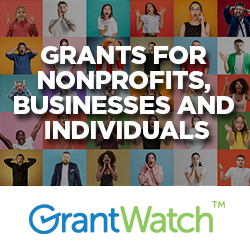Grants to USA, Canada, and International Nonprofits, For-Profits, IHEs, Tribes, and Agencies to Address Barriers to Cancer Treatment
Geographic Focus
USA: Alabama; Alaska; Arizona; Arkansas; California; Colorado; Connecticut; Delaware; Florida; Georgia; Hawaii; Idaho; Illinois; Indiana; Iowa; Kansas; Kentucky; Louisiana; Maine; Maryland; Massachusetts; Michigan; Minnesota; Mississippi; Missouri; Montana; Nebraska; Nevada; New Hampshire; New Jersey; New Mexico; New York City; New York; North Carolina; North Dakota; Ohio; Oklahoma; Oregon; Pennsylvania; Rhode Island; South Carolina; South Dakota; Tennessee; Texas; Utah; Vermont; Virginia; Washington, DC; Washington; West Virginia; Wisconsin; Wyoming
USA Territories: American Samoa (USA); Guam (USA); Puerto Rico (USA); Virgin Islands (USA); Northern Mariana Islands (USA);
USA Compact Free Associations: The Federated States of Micronesia (USA) Marshall Islands (USA) Republic of Palau (USA)
Canada: Alberta; British Columbia; Manitoba; New Brunswick; Newfoundland and Labrador; Northwest Territories; Nova Scotia; Nunavut; Ontario; Prince Edward Island; Quebec; Saskatchewan; Yukon;Israel. International, Israel and Canada.
USA Territories: American Samoa (USA); Guam (USA); Puerto Rico (USA); Virgin Islands (USA); Northern Mariana Islands (USA);
USA Compact Free Associations: The Federated States of Micronesia (USA) Marshall Islands (USA) Republic of Palau (USA)
Canada: Alberta; British Columbia; Manitoba; New Brunswick; Newfoundland and Labrador; Northwest Territories; Nova Scotia; Nunavut; Ontario; Prince Edward Island; Quebec; Saskatchewan; Yukon;Israel. International, Israel and Canada.
Important Dates
LOI Date: 09/16/25
Deadline: 10/16/25 5:00 PM Local Time
Deadline: 10/16/25 5:00 PM Local Time
Short Grant Description
Grants to USA, Canada, and International nonprofit, for-profit, and faith-based organizations, IHEs, school districts, government agencies, and tribes to address barriers to cancer treatments of underrepresented communities. Applicants must complete the required regist...
View Full Grant Details
Subscribe to become a MemberPlus+
Subscribe to GrantWatch
| Features | MemberPlus+ | |
| 1. | Thousands of Grants and 990 Reports |  |
| 2. | Complete Grant Descriptions and Ability to Save as a PDF |  |
| 3. | Grant Eligibility with Direct Links to RFPs to Apply |  |
| 4. | Live Customer Support |  |
| 5. | Email Updates of the Latest Grants |  |
| 6. | Real Time Personalized Grant Alerts |  |
| 7. | Affordable Pricing Options |  |
| 8. | Multi-User and Library Licenses |  |
| 9. | Keep Track of Your Grant View History |  |
| 10. | Hide Ineligible Grants |  |
| 11. | Personalized Grant Calendar with Submission Tracker |  |
| 12. | Boolean Keyword Search |  |
| 13. | SMART Advanced Grant Search |  |
| 14. | Save Your SMART Grant Search Filters |  |
| 15. | Foundation Search and IRS 990 Report Finder |  |
| 16. | Grant Recipient Profiles with Reverse Search |  |
| 17. | Save Foundations and Recipient Search Filters |  |
| 18. | GrantNews Newsletter |  |
| 19. | Grant Resources and Tutorial Videos |  |
| 20. | Priority Purchase of The Queen of Grants by Libby Hikind |  |
| PRICING & PLANS | ||


